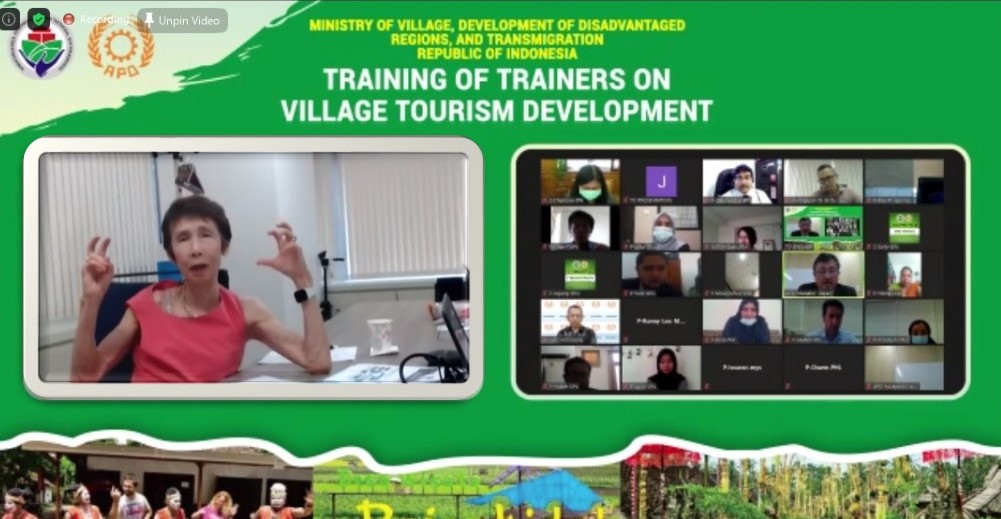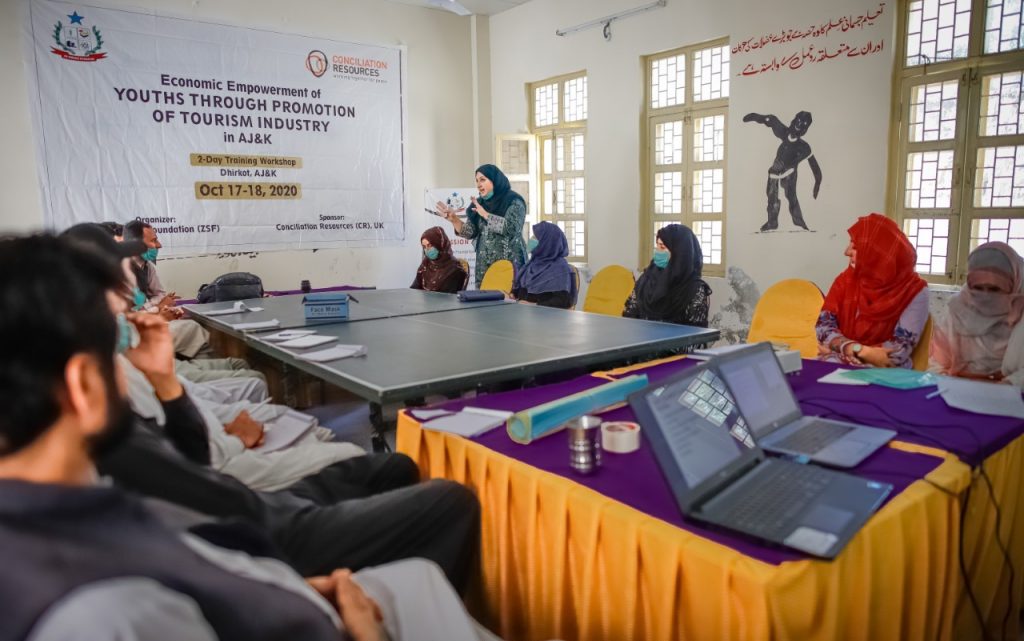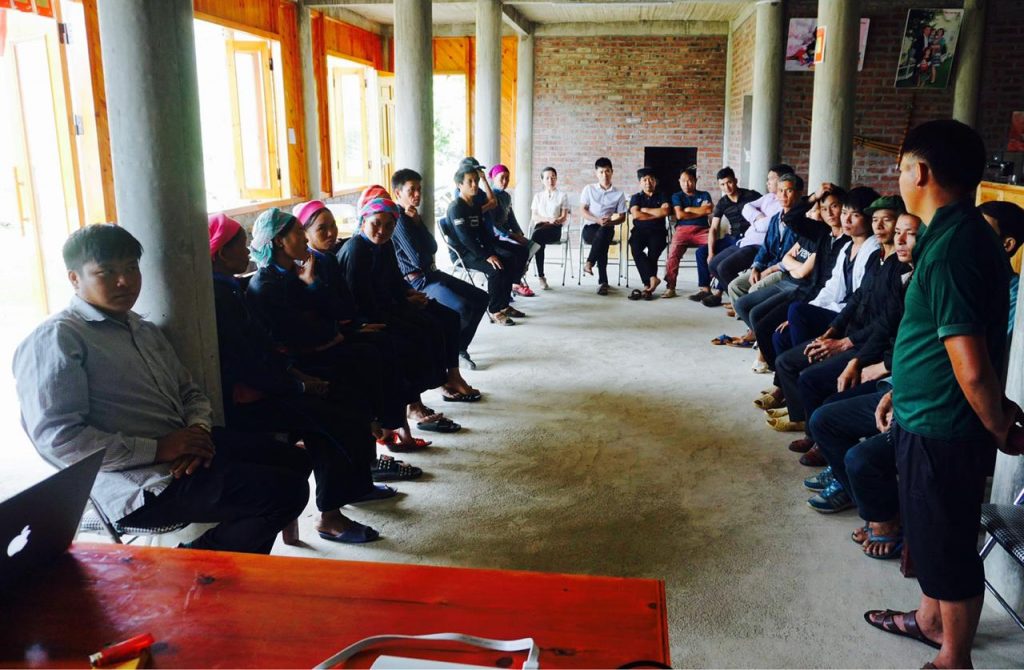
Select Page
Although the terms “village tourism,” “rural tourism,” and “agritourism” are often used interchangeably, village tourism has several distinct characteristics, especially in its effects on local communities. As rural regions in many developing regions are attempting restructuring with declining agricultural activities, they are turning to tourism to contribute to socioeconomic development and create jobs and income. Village tourism takes advantage of small populations in natural landscapes with unique cultural history to achieve those goals, ideally offering visitors opportunities for an in-depth appreciation of a specific local community.

The program was virtually hosted and coordinated by the MVDDRT.
In cooperation with the Ministry of Village, Development of Disadvantaged Region and Transmigration and NPO under the Ministry of Manpower of Indonesia, the APO organized a Training of Trainers on Village Tourism via virtual sessions held from 6 to 8 October 2020. The main objective was to examine how to identify resources that could be developed into viable community-based village tourism activities, leading to increased local incomes and higher overall productivity in rural communities. Resource persons from Indonesia, Japan, and the Republic of Korea presented past and current case studies from their countries and spoke on business models to make village tourism initiatives sustainable. Challenges and opportunities under the new normal resulting from the global COVID-19 pandemic were addressed, along with ways in which strengthening rural communities can contribute to meeting the UN Sustainable Development Goals.
The resource persons also guided the 29 participants representing 11 APO members through virtual discussions and group exercises and then through the drafting of plans to train others in their countries in innovative approaches for offering or improving village tourism activities. Several participants have already put those plans into action, as illustrated in the accompanying photos of training sessions organized.

A tourism training program held in Pakistan soon after the course lead by a participant, Ms. Hina Nisar Sadouzai. Photo courtesy of Nisar Hussain.

Participants in a village tourism course tailored for ethnic communities in Vietnam.